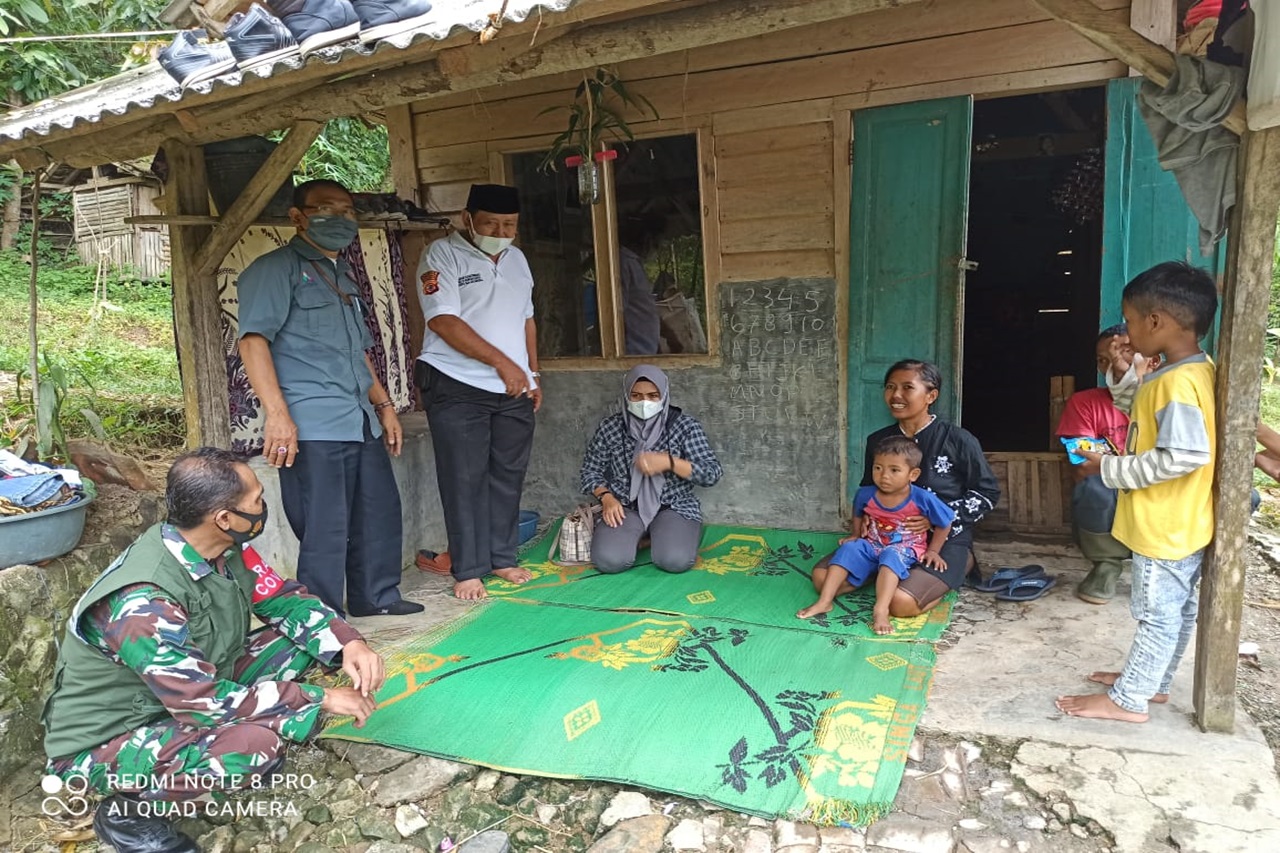Ministry of Social Affairs Responses to the Case of One Family Living in the Garden

MAJALENGKA (15 April 2021) - The Ministry of Social
Affairs through the Jakarta "Mulya
Jaya" Training Center received a report on social problems from the Head
of Patuanan Village that occurred in Parung Jaya Village, Leuwimunding
District, Majalengka Regency. The Mawar Persada Social Welfare Institution
(LKS), which is a partner of the “Mulya Jaya” Training Center, said that there
was a family consisting of a husband and wife, Jeni and Melani, and their four
children, who lived in a hut in Dullah's garden, a resident of Patuanan
Village.
Following the direction
of the Minister of Social Affairs, Tri Rismaharini, that all Balai Besar /
Balai / Loka (Social Rehabilitation Centers) within the Ministry of Social
Affairs can respond quickly to whatever social problems that occur in the
community. The Social Workers of "Mulya Jaya", Suroso and Hasan Otoy
headed straight to the family's house which is located on the slopes of Mount
Lindu.
After the assessment, it
was discovered that Jeni and Melani did not have a job and provided daily needs
for their family by eating produce from the garden around the house and selling
banana leaves in the market so they could buy some rice.
"Every day I only eat
what I found in the garden, Sir," said Melani.
"Because of eating
in moderation, my third child became hungry and malnourished, Sir," he
added.
Before getting married,
Melani worked as an Indonesian Migrant Worker (PMI) in Saudi Arabia to be able
to make ends meet and pay off her family's debts. After years as PMI, Melani
felt tired of the debt because it had not been paid off, finally, she decided to
return to Indonesia and marry Jeni.
Hoping to have a marriage
according to her wishes, unfortunately, their parents do not bless them.
However, these problems did not prevent their good intentions to marry. Jeni
and Melani decide to marry unnotarized and their family does not attend.
After marriage, Jeni and
Melani do not have officially registered population data such as e-KTP, family
card, including birth certificates for their children, and health insurance.
This resulted in Melani and her family having difficulty accessing education
and health assistance and facilities.
 English
English
 Bahasa
Bahasa
